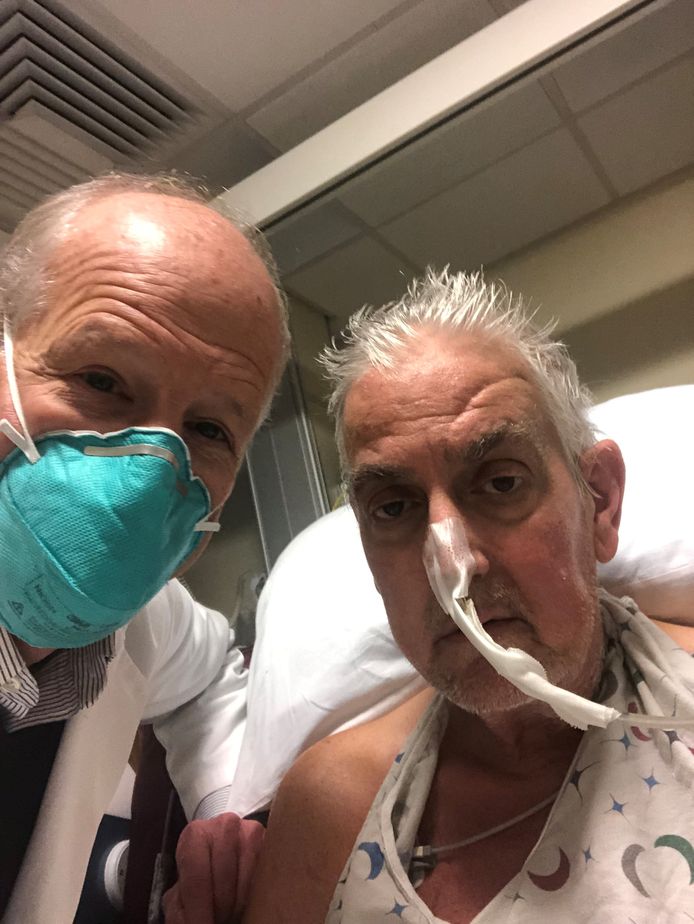The American who became the first person to ever have a pig heart transplanted on Friday is doing well. David Bennett, 57, is still recovering from the experimental surgery. “We don’t know how the patient is going to do from now on because it’s never been done before,” said Dr. Christine Lau, chief of surgery at the University of Maryland where the transplant was performed.
–
After the landmark surgery, Bennett was connected non-stop to a heart-lung machine to support his new heart. On Tuesday, that machine was shut down, said Deborah Kotz, a spokesman for the University of Maryland. “We are still looking at it day by day, and will be for the next few weeks,” Kotz explained.
–
“He’s more at risk because we need more immunosuppression,” Dr Christine Lau told the BBC, referring to the medication Bennett is taking to suppress his immune system, preventing his body from rejecting the pig’s heart. The heart Bennett got came from a pig that had been genetically modified in such a way that the organ was less likely to be rejected.
–
Pigs and chimpanzees
Pigs have long been a promising source of transplantation because their organs are very similar to those of humans. For example, the heart of a pig is about the same size as that of an adult human. Pig heart valves have been used successfully for years as a replacement for human heart valves.
–
However, the very first experiments in which organs from animals were placed in humans were not with pigs, but with chimpanzees. That started in 1963 with a transplant of kidneys from these great apes in thirteen patients. The first attempt at a heart transplant took place in 1964 and used the heart of a chimpanzee. However, the patient died within two hours.
–
–
Antigens and Rejection
The first attempts at transplanting pig organs were also unsuccessful. Because of the genetic differences, the human body rejects these organs. This happens, for example, at the surface of blood vessels. People have blood types A, B and O. The blood cells contain certain proteins (antigens) from which the body can recognize the blood: A, B, both (AB) or none – that is type O.
–
These antigens are the reason that someone with blood type A, for example, cannot donate to someone with type B: the body does not recognize the blood as its own and rejects it. Pigs have a sugary protein called ‘Gal’ on the lining of their blood vessels. Because people don’t have it, they make antibodies against it. A regular pig heart is therefore rejected by the body within a few hours.
–
Scientists have been trying to circumvent this problem for some time through genetic modification. In the heart Bennett received, a total of ten genes have been altered: three genes linked to organ rejection have been deactivated, and a gene has been deleted to prevent excessive growth of the heart tissue. In addition, six different genes that ensure better acceptance of the donor heart in the pig genome have been added. Bennett also receives an experimental anti-rejection drug.
–
Text continues below the photo
–
–
Waiting lists for organs
David Bennett, 57, suffered from heart failure and an irregular heartbeat. This would make him eligible for a human donor heart, or a heart pump. However, there are long waiting lists for that, and the pig heart was his only option at the moment. It was “die or do this transplant,” Bennett said. ,,I want to live.”
–
“This was a breakthrough and brings us one step closer to solving the organ shortage crisis,” Dr Bartley Griffith, who performed the heart surgery, said in a statement. “We are proceeding cautiously, but are also optimistic that this surgery may provide a new option for patients in the future.”
–
About 110,000 people in America are waiting for an organ transplant, of which about 3,500 are waiting for a heart. More than 6,000 people die each year in the US before receiving an organ donor. There are also waiting lists in the Netherlands. At the end of 2020, 133 people were waiting for a new heart, of which 40 received a new heart that year. The mortality on the list is high: one in seven (15 percent) dies because a donor heart is not available in time. In children it is even 30 percent.
–
Free unlimited access to Showbytes? Which can!
Log in or create an account and never miss a thing from the stars.
–
–



